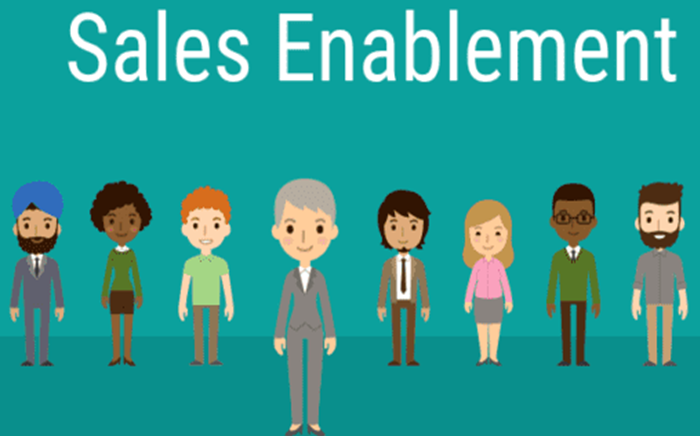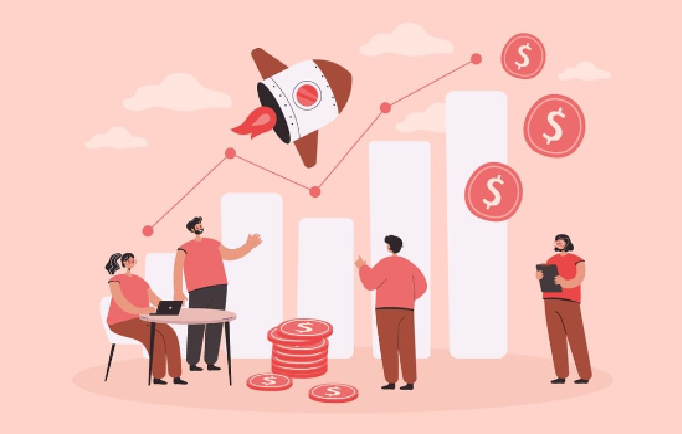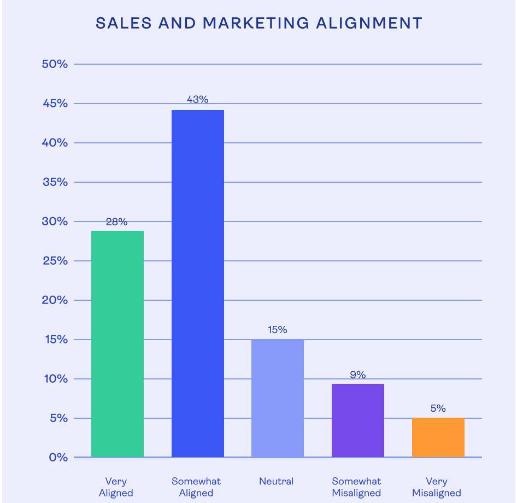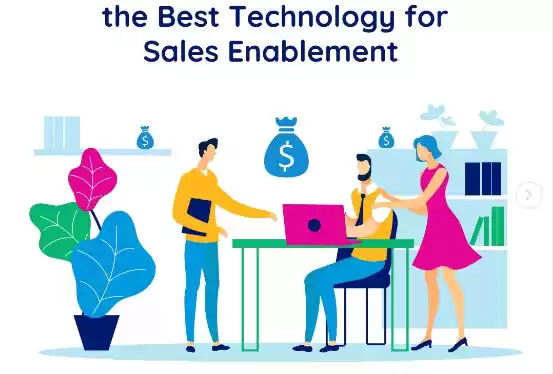Some companies believe that sales reps need nothing besides proper sales tactics and sales skills to effectively sell products or services.
The truth is that sales reps need way more in order to achieve great results – training materials, tools, and resources. Sales enablement is exactly what they actually need to walk leads through the buyer’s journey successfully.
Yet, what is sales enablement, exactly? What about the sales enablement strategy? Why should you implement it into your selling strategy and how can sales enablement impact your business and revenue positively? We’ve answered all of these questions below!
What Is Sales Enablement?

Sales enablement makes it a breeze for salespeople (the ones that are remote selling in the first place) to connect with prospects and help them close more deals. It equips them with the right knowledge, content, and information and engages and empowers them to hit their quota.
In other words, sales enablement is the key to selling more effectively and, more importantly, the key to your company’s growth.
It is also kind of a mindset thing. Shifting the existing beliefs and patterns of thinking can help your sales representatives start believing that they can develop basic abilities and become more successful at selling and establishing long-term relationships with customers.
Now that we’ve mentioned customers, keep in mind that sales enablement doesn’t only benefit sales reps and your company but your customers as well since it ensures better customer experiences, too!
Thus, salespeople should get plenty of resources and information to learn from that will help them be better at what they do. Yet, all this can be in vain if the appropriate training on how to use these resources and how to improve sales skills is provided.
Finally, once a sales rep has gotten all the possible support on how to engage, attract, and satisfy the customer, the company should track how they are using this knowledge. Keep an eye on the metrics and results for sales representatives – what’s their average deal size, are they achieving their quota, etc.
6 Benefits of Sales Enablement
There is a plethora of benefits sales engagement provides and these are the main ones:
- It provides a strict and easy-to-follow framework to all salespeople in your company so that even the lowest-performing people can start delivering significantly better results,
- It increases predictability and helps with optimizing your sales funnel, which, ultimately, results in closing more deals and establishing stronger customer relationships,
- It enables collecting more valuable data salespeople can use to convince prospects to make a purchase without coming across as pushy,
- It boosts the quality of sales conversions,
- It aligns marketing and sales teams on the tactics and goals since both marketing and sales own sales enablement and impact the sales enablement strategy.
What Is a Sales Enablement Strategy?

A sales enablement strategy is a pretty much self-explanatory thing. It’s basically a strategy you plan to implement to help salespeople in your organization sell more effectively and efficiently.
There is no such thing as one-size-fits-all and you need to tailor the strategy to the needs of your sales team and customers. We’ve already mentioned some of the elements of a sales enablement strategy throughout the text but here’s the complete list:
- Resources and materials or, in short, content (blogs, case studies, podcasts, webinars),
- Sales coaching and sales performance coaching (it teaches salespeople how to use the resources provided),
- Sales enablement and analysis/reporting tools and software.
Why Do You Need a Sales Enablement Strategy?
You probably already know that industries are evolving fast and new sales models, tools, and products emerge on a constant basis. This can get overwhelming for most salespeople, make them lose confidence, and sometimes can even lead to burnout.
Having a group of people that are working on the sales enablement strategy and sales enablement initiatives can help your sales reps keep their sanity, remain focused, and provide consistent results.
A sales enablement strategy can also reduce the tension between sales and marketing directors and make these two departments work almost as a whole. After all, the sales team will do their part instead of losing time on content creation while marketing teams can focus their efforts on producing content and safeguarding your brand standards.

This way, salespeople will be able to answer client questions without a second thought by simply sending over a flyer, a tailored sales deck template, or links to blogs and webinars.
Ultimately, providing clients with a stream of resources and information will boost confidence and instill trust in your products or services and make them more likely to buy.
How to Develop a Sales Enablement Strategy?
1. Organize Sales Content
If you already have a bunch of sales content, all that you should do is organize and categorize it. For instance, you can create content libraries consisting of:
- Lead generation content,
- Content for sales conversion,
- Customer retention content,
- Content for internal sales support.
And then, we can split this into:
- Whitepapers,
- eBooks,
- Case studies,
- Video materials,
- Pricing and discount information.
We also suggest creating several customizable cold email templates and using these when reaching out to prospects.
If you’ve launched a new product or feature recently, write a case study and explain the challenges it solves. Publishing customer success stories speaks for itself and makes products and services that you sell appear more valuable in the eye of a prospect. Do this every couple of months to make it clear to your target audience that you can solve the problems they are dealing with.
Ideally, create and publish high-quality case study videos. Customers are 4 times more likely to buy after watching a good explanation video than they are after simply reading content.
2. Do the Necessary Reporting and Analysis

Boosting conversions would be a mission impossible without valuable data. On the other hand, tons of data can, again, overwhelm salespeople and affect their productivity in a negative manner.
Here’s how to collect data and what to do with it afterward:
- Generate multiple reports (number of demo calls scheduled, number of leads generated, deals won and lost),
- Investigate sales processes to discover areas that would need improvement (for instance, if your team is booking a bunch of calls every month but the number of deals closed is drastically lower),
- Implement a lead scoring system so that high-quality leads are instantly directed to sales representatives and everyone else is moved to a customer management system where salespeople can easily find them once they have some free time.
Now that we mentioned a customer management system, we can move on to the final part…
3. Leverage Technology and Automation

Moden sales representatives now enjoy a plethora of benefits of automation. Going 20 years back, their peers were having to handle everything manually. In other words – nowadays, you can make more sales with way less effort and in less time.
First things first – craft email sequences and set them on autopilot. Sales reps send 94 emails (mostly follow-ups) on average per day. Now, just imagine being able to send dozens of follow-ups without actually doing anything. Depending on the program you are using, the bot can use prospect-specific contact and company details and tailor the message so you don’t have to.
Besides that, you can automate scheduling calls by directing prospects to a calendar where they can choose a time and date that works best for them. Or, you can record an on-demand webinar and automatically send out the invites to people on your email list.
There are other benefits of using call center automations, such as pulling-up information about your customers via omnichannel sources. This way, the agents will have a full picture of each client, optimize sales processes and reach conversions faster.
The live chat feature on your website will allow salespeople to interact with prospects while they’re still hot. You can also up this game and use a filter to surface top-notch leads.
Finally, there is a bunch of sales enablement software specifically built to help you manage every step of the way – from content creation to reporting and collaborating. With one of these, you can easily track your sales pipeline, interactions with prospects, optimize your customer lifecycle, and make your sales enablement process as smooth as butter.
Summary
If you want to boost conversions and drive revenue for your business, sales enablement is the way to go! Make sure that the communication between your sales and marketing teams is on point because both parties need to work together to reach more leads successfully and convert them into customers and brand advocates.


 Table of Content
Table of Content










